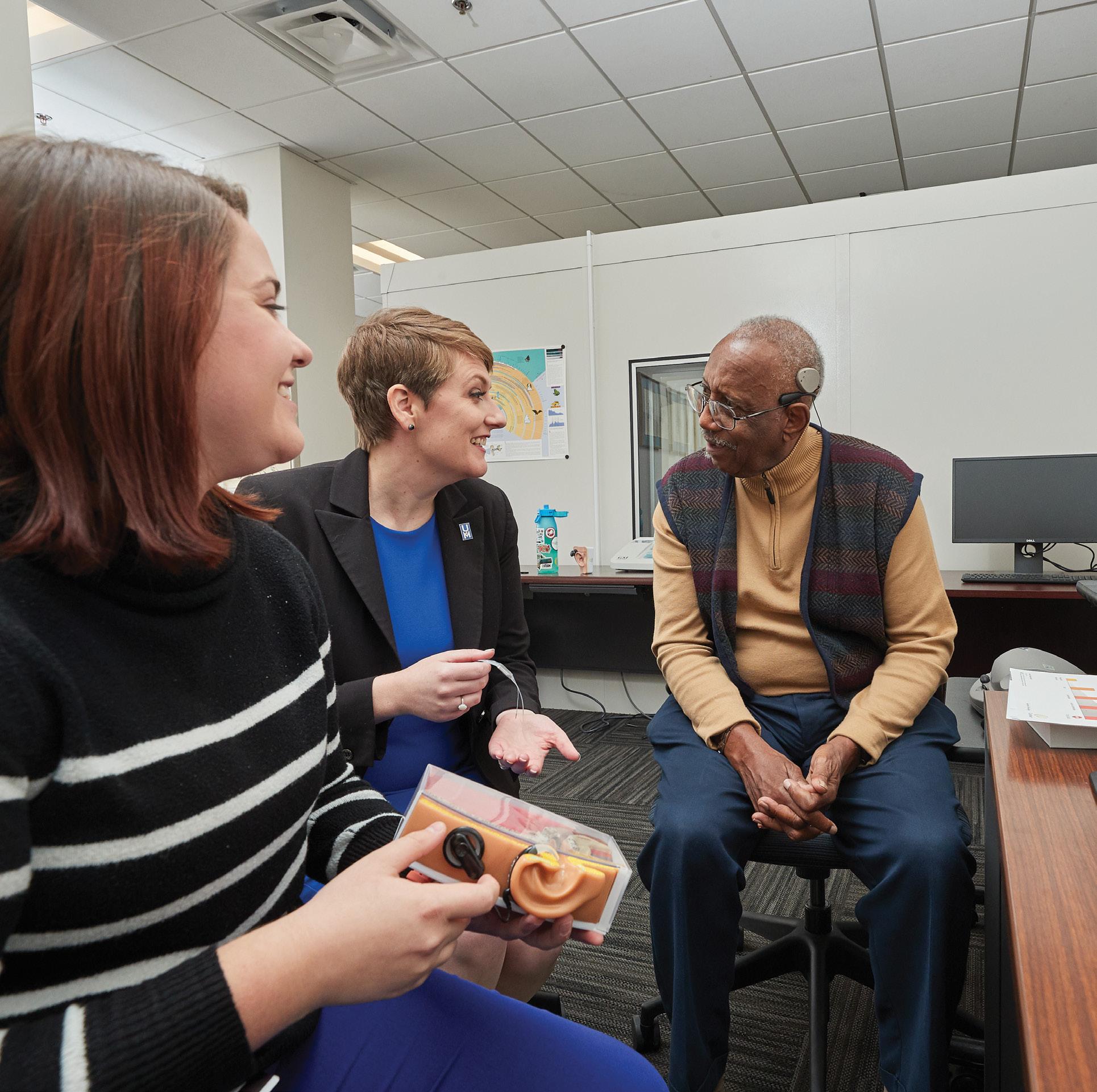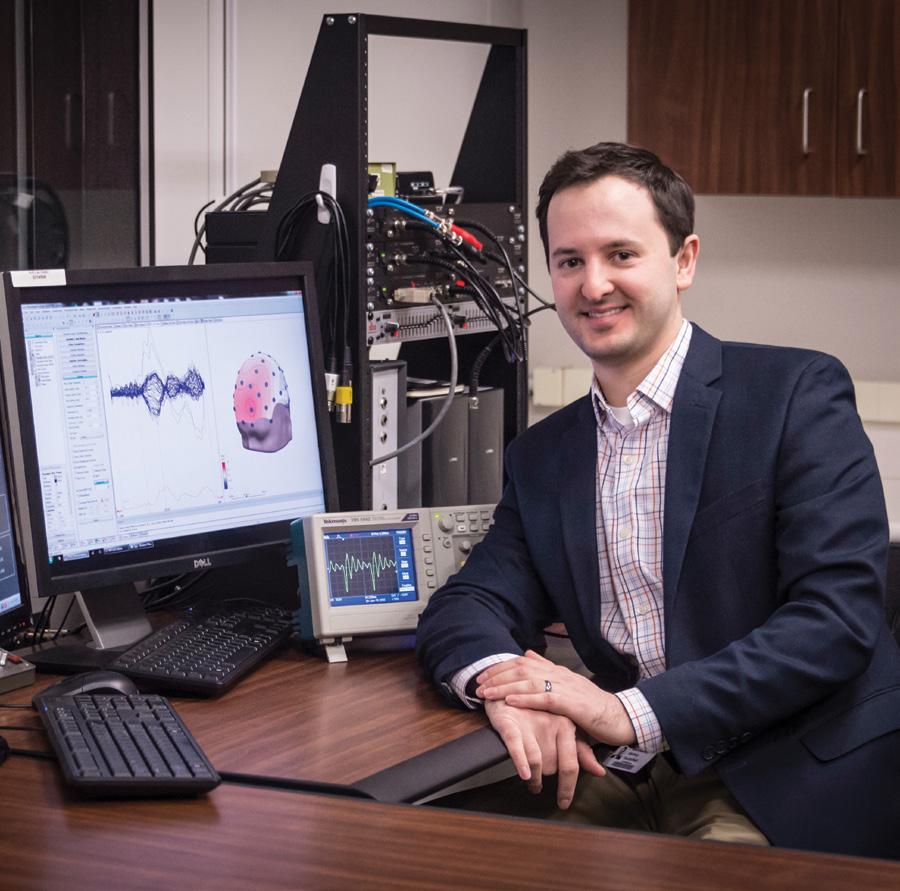Infant Vocalization and Origins of Language Laboratory memphis.edu/ivoc
D. Kimbrough Oller, PhD is professor and Plough Chair of Excellence in the School of Communication Sciences and Disorders. He studied at the University of California Berkeley and the University of
Board of the LENA Research Foundation of Boulder, Colorado. At the University of Memphis, he directs the Infant Vocalization Project and the Origins of Language Project and with Dr. Linda Jarmulowicz co-directs
Texas at Austin, where he completed the PhD in Psycholinguistics (1971). His previous appointments have included faculty positions at the University of Washington, the University of Miami and the University of Maine, director of the Infant and Child Speech Laboratories and the Bilingualism Study Group at the University of Miami (1976-97) and chair of the Department of Communication Sciences and Disorders at the University of Maine (1997-2001). Since 2008, he is a permanent external faculty member of the Konrad Lorenz Institute for Evolution and Cognition Research (Klosterneuburg, Austria).
the Bilingualism Research Project.
Oller has received continuous funding from the National Institutes of Health and many other sources since 1971, and published over 220 articles, four books and has edited two journal volumes. He has served as vice president for Research and Academic Development for the Council of Academic Programs in Communication Sciences and Disorders. Oller was elected as a Fellow of the American Speech-Language Hearing Association (ASHA) in 2004, and was awarded Honors from the association in 2013. In 2010, one of Oller’s scientific research articles was recognized by Autism Speaks as one of the top 10 achievements in autism. Oller is a permanent member of the Scientific Advisory
20
Research Interests With a special focus on infancy, bilingualism, deafness and origins of language, Oller and his colleagues’ research covers a broad spectrum of topics on child speech and language. His most important contribution is a general theoretical and methodological model for the study of human communicative development, which laid the groundwork for recognizing normal stages of vocal development and assessing developmental communication disabilities. Oller has supervised and funded research by students and faculty in a wide variety of fields, including child phonology, infant vocalization, semantics, pragmatics of communication, multilingualism, and in disorders of communication including phonological impairments, deafness, Down syndrome, and autism. Current Research and Applications Oller’s research is directed toward illuminating the origin of language. This effort encompasses both development in human and non-human infants as well as the formulation of a general theory of the origin of communication systems. This work establishes a foundation for both scientific understanding and a variety of clinical
applications. Oller and his team collaborate with other scholars on three continents at not fewer than 15 universities and research institutes. In collaboration with the Marcus Autism Center and Emory University, Oller’s most recent grant funding from the National Institutes of Deafness and other Communication Disorders (NIDCD) is for the study Early Vocal Development and Prediction of Autism. The research focuses on infant vocal development with a specific emphasis on development in the first year of life in infants who have siblings with autism. The goal is to predict the emergence of autism or other developmental disorders by indicating early signs of vocal development aberrations. In addition, the grant project includes efforts towards creating more effective automated procedures for vocal analysis. Future Endeavors Oller’s collaborations make possible research on communicative development: in prematurely born infants, still in the neonatal intensive care, in infants with a wide variety of risk factors for development including autism, Down syndrome and low socioeconomic status and in non-humans such as bonobos, chimpanzees, wolves and marine animals. The empirical work is always embedded in theoretical frames that have been emerging in the laboratories for decades. The work is widely published and affords the opportunity for students involved in the research to interact broadly with scholars around the










